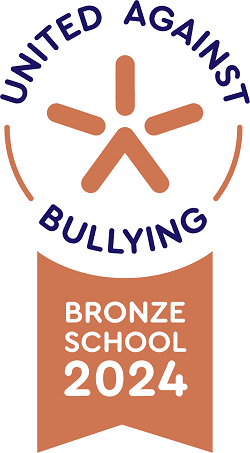Religion, philosophy and ethics curriculum approach
Looking at the religions of the world allows us to consider their different answers to some of life’s most difficult questions: Why do bad things happen? Is there an afterlife? How do you know when something is right or wrong? What do I think about these ideas myself? It also helps us understand how the different cultures and communities in today’s world have developed in the way that they have.
The religious education syllabus involves students learning about religion and from religion. The curriculum is designed to nurture inquisitive learners who can reflect on their own beliefs, respect the beliefs of others and appreciate the value of religions.*
Key stage 3 implementation
Students develop an understanding of the key features of different religious beliefs, and consider how and why followers put these beliefs into practice. Topics include a study of religious founders such as Jesus, Muhammad and Gotama Buddha, and their key teachings. Themes such as “festivals” and “places of worship” are also explored. Issues such as poverty and the environment are also examined from a religious and social perspective, reflecting on how moral values are applied to different aspects of contemporary life and considering what students’ own responses might be.
We aim to enable students to learn in a variety of ways: through research and discussion, through project work, but also through a variety of media such as drama or art. We celebrate creativity and recognise that independent learning skills can be developed in many ways.
Students are taught Religion, philosophy and ethics within the personal development curriculum on a nine-week bock rotation. This provision is supported by two twenty-minute weekly sessions currently for year 7 students to engage in an enquiry question each term.
Impact
Religion, philosophy and ethics at East Leake Academy supports children to grow academically and personally.
Students reflect on their own beliefs, practices, and traditions and describe various religious beliefs, practices, and traditions, fostering a foundational understanding of diverse faiths. Within RPE lessons and year 7 religious education enquiries, students explain the significance of these beliefs and practices within their cultural and historical contexts, deepening their comprehension and appreciation of religious diversity. Students understand methods of theological enquiry, such as interpreting religious texts and are able to analyse religious narratives, ethical dilemmas, and philosophical questions, developing critical thinking skills and the ability to evaluate complex ideas with depth and insight. Ultimately, students are equipped with the skills and attitudes necessary to navigate an increasingly diverse and interconnected world with empathy and understanding.
* Parents and carers have the right to request their child is withdrawn from all or parts of religion, ethics and philosophy. Requests can be made by contacting the academy at office@eastleake-ac.org.uk.

